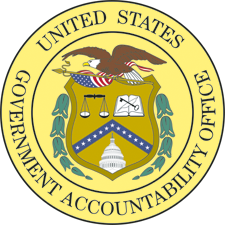
The Government Accountability Office (GAO) added government-wide personnel security clearance to its “High Risk List” on Thursday, which designates programs in need of transformational changes to reduce the risk of waste, fraud, abuse, and mismanagement.
GAO typically updates the High Risk List on a two-year cycle and the next scheduled update is in early 2019. However, GAO said it added government-wide personnel security clearance to the list early because recent reviews identified an immediate need.
“A high-quality and timely personnel security clearance process is essential to minimize the risks of unauthorized disclosures of classified information and to help ensure that information about individuals with criminal histories or other questionable behavior is identified and assessed,” Comptroller General Gene Dodaro said. “Our objective for the High Risk List is to bring attention to policymakers of the need for action sooner, rather than later. Renewed and strong top leadership commitment will be critical to facilitate progress in reducing the backlog and completing key improvements to the personnel security clearance process.”
Recent GAO reviews found a “significant backlog” of background investigations, which totaled more than 700,000 cases in September. Reviews also found that long-term goals for reducing the backlog hadn’t been established, security clearance delays, lack of milestones for establishing performance measures, and concerns from the Department of Defense about how a new IT system for personnel security clearance interacts with legacy systems used by the Office of Personnel and Management.
U.S. Sen. Jon Tester (D-MT) called GAO’s findings “flat out unacceptable.”
“These are the people responsible for protecting our nation’s most sensitive information,” Tester said. “If this process is compromised, our national security is compromised. It’s just that simple. We’ve done a lot to initiate change in recent years and as these reforms are implemented I will be doing everything I can to close the loopholes, identify the weaknesses, and address the backlog plaguing this process.”
Tester previously led Senate committee oversight hearings on the federal security clearance process. He’s also introduced bills to make changes. Signed into law last year, his SCORE Act dedicates additional federal resources to background checks. And enacted as part of the larger SECRET Act of 2017, Tester’s SCARE Act prohibits those who have compromised background investigations from conducting them again in the future.




